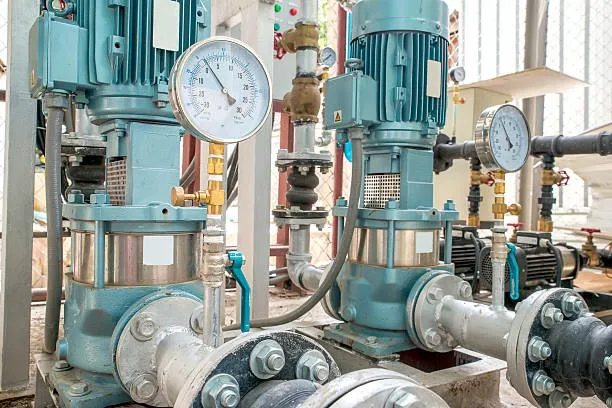
Boiler Tune-Up in Stewartstown, PA
Keeping your boiler tuned and inspected is essential in Stewartstown, PA, where long, cold winters and older neighborhood homes mean your heating system works hard for months at a time. A professional boiler tune-up reduces the risk of mid-winter breakdowns, improves fuel efficiency, and helps keep your family safe from combustion-related hazards.
What a Boiler Tune-Up Includes
A comprehensive boiler tune-up covers inspection, testing, cleaning, minor replacements, and system adjustments. Core elements include:
- Burner and control inspection
Visual and operational checks of burners, pilot systems, ignition, and control boards to ensure reliable starts and correct operation. - Flue and vent checks
Examination of the flue, chimney, and venting for blockages, corrosion, leaks, or improper clearances that can cause poor drafting and carbon monoxide risks. - Combustion testing
Measurement of combustion efficiency and gas/air ratios using a combustion analyzer. Verifies the boiler is burning fuel cleanly and within safe limits. - System calibration and adjustments
Tuning of gas pressure, burner settings, and control setpoints to optimize efficiency and maintain steady heat delivery across the system. - Filter, gasket, and seal replacement
Replacing worn gaskets, seals, and accessible filters to prevent leaks and energy loss; checking pump seals and valve packing. - Inspection for emerging issues
Identification of corrosion, scale buildup, weakened components, or signs of a failing heat exchanger so problems are addressed before failure. - Written report with recommendations
A clear, documented summary of findings, test results, parts replaced, and prioritized recommendations for repairs or upgrades.
Common Boiler Problems in Stewartstown, PA
Local homes often expose boilers to specific stresses. Common issues seen in Stewartstown include:
- Inefficient combustion or high fuel bills — Often from dirty burners, clogged jets (especially in oil systems), or improperly adjusted controls.
- Frequent cycling or short cycling — Caused by incorrect pressure/temperature settings, a failing aquastat, or trapped air in the system.
- Pressure loss and leaks — Aging valves, pipe corrosion, or failing expansion tanks. Cold weather and thermal cycling accelerate wear.
- Pilot/ignition failures — Faulty ignitors, flame sensors, or gas supply issues that cause intermittent heat loss.
- Soot, smoke, or poor venting — Blocked chimneys, animal nests, or vent corrosion leading to unsafe exhaust conditions.
- Noisy operation — Kettling from scale on heat exchangers, loose components, or failing circulator pumps.
How the Tune-Up Process Works
A professional tune-up follows a systematic inspection and adjustment workflow so you know exactly what was tested and corrected:
- Pre-check and safety inspection
Verify fuel supply, check visible piping and valves, ensure combustion air and clearances meet safety standards. - Operational run and control diagnostics
Start the boiler and observe startup sequence, monitor ignition, burner behavior, and control responses. - Combustion analysis and venting inspection
Use a combustion analyzer to measure CO, CO2, O2, and flue temperature; visually inspect venting and chimney for blockages or leaks. - Cleaning and minor repairs
Remove soot or scale from burners and heat exchangers where safe and practical; replace accessible gaskets, filters, and seals as needed. - System calibration and leak/pressure checks
Adjust burner settings and control setpoints, top off system pressure if needed, and check for leaks or pressure loss. - Final testing and documentation
Re-run combustion and performance tests, compare results to manufacturer specifications, and compile a written report with next-step recommendations.
Most residential tune-ups take roughly 60–90 minutes depending on boiler type, age, and any repairs required. Technicians take safety precautions and will document any components that need future attention.
Benefits of Regular Boiler Tune-Ups
Scheduling a professional tune-up annually (or more often for older or oil-fired systems) delivers measurable benefits:
- Improved fuel efficiency — Proper combustion and calibrated controls reduce fuel use and energy bills.
- Greater reliability — Early detection of worn parts reduces the likelihood of unexpected mid-winter failures.
- Enhanced safety — Flue and combustion checks lower carbon monoxide risk and detect unsafe venting or leaks.
- Longer equipment life — Cleaning and minor repairs reduce corrosion and stress on critical components.
- Warranty and insurance compliance — Many manufacturers recommend annual maintenance to keep warranties valid and document proper care.
In Stewartstown’s climate, where freeze cycles and extended heating seasons put extra stress on systems, tune-ups are especially valuable to prevent costly emergency repairs.
What the Written Report Covers
After the tune-up you should receive a clear report that includes:
- Test data from combustion and pressure checks
- Parts replaced and maintenance performed
- Any safety concerns or code-related venting issues found
- Prioritized recommendations (urgent, recommended, optional) with explanations
- Efficiency notes and expected performance after adjustments
This report helps you decide which repairs to prioritize and provides documentation of maintenance for future service or resale.
When to Schedule and Homeowner Tips
- Frequency: Schedule a full tune-up annually before the heating season starts (late September to October in Stewartstown). For older boilers or oil systems, consider twice-yearly checks.
- Warning signs: Schedule an immediate inspection if you notice strange odors, sudden pressure loss, frequent cycling, yellow pilot flames, soot around the unit, or your carbon monoxide alarm activates.
- Simple homeowner care: Keep the boiler area clear, bleed radiators to remove trapped air, check that vents/chimneys remain clear of debris, and replace accessible filters on schedule.
A professional boiler tune-up in Stewartstown, PA, delivers safety, efficiency, and peace of mind through thorough inspection, testing, and documentation tailored to local heating needs. Regular maintenance protects your investment and ensures reliable warmth through the cold months.


Enjoy flexible financing options that make upgrading or repairing your HVAC system easy and budget-friendly.










